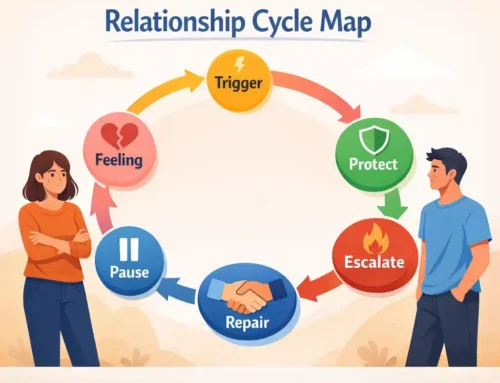
Approx. read time: 8.3 min.
Post: Ability-Based Parenting: Help or Harm? A Balanced Guide
🤔 What Is Ability-Based Parenting?
Ability-based parenting is the habit of organizing expectations, praise, activities, and even school choices around what a child already does well. In moderation, ability-based parenting can be energizing; taken too far, it narrows identity and increases performance pressure. Much of this article shows you how to keep ability-based parenting supportive, not restrictive, using research on growth mindset and autonomy support (more in the Sources). PubMed+2Bing Nursery School+2
🧠 Mindset & Motivation: Why This Matters (Growth vs. Fixed)
Carol Dweck’s mindset research finds that ability praise (“You’re so smart”) nudges kids toward a fixed mindset—they avoid challenge and fear mistakes—while process praise (“You worked hard and tried new strategies”) fosters a growth mindset and resilience. This isn’t theory only; classic experiments showed intelligence-praise undercuts motivation compared to effort-praise. PubMed+2Center for the Advancement of Teaching+2
Self-Determination Theory (SDT) adds that children thrive when parenting supports three basic needs: autonomy, competence, and relatedness. Autonomy-supportive parents (vs. controlling) have kids who are more intrinsically motivated across school, sports, and music. Daily diary studies show small, consistent autonomy support boosts well-being. Self Determination Theory+2Self Determination Theory+2
✅ Why Parents Gravitate Toward Ability-Based Parenting
It feels productive, boosts visible wins, and simplifies choices. When a child shines at writing or soccer, funneling resources there seems obvious. Yet, as you’ll see, ability-based parenting needs guardrails so it doesn’t crowd out exploration or turn strengths into labels. For a balanced view, we’ll weigh upsides and downsides and then give you tools that preserve motivation and well-being. (See also the “Help vs. Hurt” table below.)
🌟 The Upside of Ability-Based Parenting (When Done Well)
💪 Confidence & Identity Anchors
Spotlighting genuine strengths—then backing them with time, tools, and feedback—builds earned confidence. Kids feel seen for something real and internalize, “When I practice, I improve.”
🎯 Clearer, Kinder Goal-Setting
Leaning into strengths helps right-size goals: “We’ll grow your writing quickly and support math steadily.” This keeps challenge meaningful without demanding perfection everywhere.
🧭 Independence & Ownership
Strength-aligned projects increase autonomy: children choose topics, set micro-goals, and learn to self-evaluate—core habits for lifelong learning in and out of school. SDT research links this to intrinsic motivation. Self Determination Theory
🔬 Sustained Engagement
Kids stay curious longer when work lives near their “interest peak.” Clubs, camps, and mentored practice can expand from a single ability into broader competencies (e.g., science → writing lab notes, presenting findings).
⚠️ The Downside & Hidden Costs (If Overused)
🏷️ Labels That Limit
“She’s the athlete.” “He’s the brain.” Labels—positive or negative—can fence kids into roles and away from trying new things. Siblings quickly internalize “lanes,” shaping choices and self-belief.
😰 Expectations & Anxiety
When identity equals performance, every plateau feels like a threat. Studies on overpraise and person-praise show motivation drops and perfectionism rises when kids feel they must prove ability rather than improve it. Child Mind Institute+1
👧👦 Sibling Rivalry & Inequality
Differential treatment—“the smart one,” “the sporty one”—fuels rivalry and erodes self-worth for the less-favored child. Reviews highlight siblings’ centrality to adjustment; newer work on favoritism underscores subtle, cumulative effects. PMC+1
🧩 The Fixed-Mindset Trap
When success is proof of “who I am,” kids avoid challenge. Growth mindset reframes struggle as how we grow. The distinction between process and person praise is crucial here. PMC
⚖️ Core Principles to Balance Strengths and Growth (Ability-Based Parenting That Works)
-
Expand the story. Name strengths and the habits behind them: “Your revision notes made the story clearer.”
-
Set dual tracks. Keep a strength track (deepening mastery) and a growth track (gentle work in weak spots).
-
Support autonomy. Offer choices (topics, tools, timelines) and invite reflection (“What strategy helped most?”). Autonomy support predicts better motivation and well-being. Stial+1
-
Normalize struggle. Treat mistakes as data.
-
Protect exploration time. Schedule “no-grade experiments” weekly.
🗣️ Language Swaps That Foster Growth (Keep the Strength, Lose the Label)
-
Instead of: “You’re a natural.”
Try: “Your practice and strategy really showed.” -
Instead of: “Math just isn’t your thing.”
Try: “Math is taking longer—what’s one tactic to try next?” -
Instead of: “You’re the artistic one in the family.”
Try: “Art is a current strength. What new domain are you curious about this month?”
These swaps shift from identity to process, aligning with growth-mindset and SDT evidence. Center for the Advancement of Teaching+1
🧪 Encourage Exploration Without Overwhelm
-
Rotate: one new micro-activity per month (e.g., gardening, coding puzzle, improv).
-
Pilot weeks: 7 days of low-stakes trying, then keep/park/replace.
-
Cross-pollinate: connect the strength to a new skill (soccer → nutrition planning; writing → public speaking).
-
“No-score” zones: spaces where outcomes don’t count—only curiosity does.
Research on strength-based parenting suggests strengths can buffer stress and bolster mental health—but don’t replace skill-building or exploration. PMC+1
🧯 Spotting Burnout & Pressure Early
Yellow flags: Sunday dread, avoidance, irritability before practice, or secretive behavior around mistakes.
De-pressurize quickly: shorten season goals, add rest weeks, and re-anchor praise to strategy/effort over wins. Child Mind Institute’s guidance on praise cautions against person-praise that spikes anxiety and dips persistence. Child Mind Institute
🤝 Co-Creating Goals Without Comparison
-
Start with values (“What matters to you about this?”).
-
Pick metrics you control (practice minutes, attempts, strategies tried).
-
Avoid sibling benchmarks; research shows rivalry is sensitive to perceived fairness, not just resources. PMC+1
🗂️ Quick Reference: Help vs. Hurt (Ability-Based Parenting)
| ✅ Supportive practice | ⚠️ Risk if overdone | 💡 Fix |
|---|---|---|
| Process praise (effort, strategy, reflection) | Fixed identity; fear of mistakes | Normalize struggle; celebrate trying new tactics |
| Autonomy-supportive choices | Choice overload or avoidance | Offer 2–3 bounded options; revisit weekly |
| Strength track + growth track | Over-specialization | Schedule “no-score” experiments |
| Specific, fair expectations | Anxiety; perfectionism | Focus on controllables; frequent debriefs |
| Individual attention | Sibling rivalry | One-on-one time with each child; rotate highlights |
(See mindset and autonomy sources for the evidence base. PubMed+1)
📚 Case Study: Lisa & Jayden (Reframing a “Math Whiz”)
Jayden was the “math kid”—racing ahead in elementary school. Praise and opportunities piled up. By grade five, tests triggered panic: If I slip, I’m not smart anymore.
Lisa pivoted to ability-based parenting done right: she switched to process praise, added guitar and storytelling as exploration, and set co-created, strategy-based goals. By grade seven, math was joyful again—and no longer his only identity. This is a textbook move from person-praise to process-praise and from control to autonomy support. PubMed+1
🧰 Tools & Routines You Can Start This Week
-
3-Win Debrief (nightly): “What worked? What was hard? What will you try next?”
-
50/50 Plan: Half your extracurricular time deepens a strength; half explores.
-
Mistake of the Week: Family celebrates one “useful mistake.”
-
Effort Board: Track strategies tried, not scores.
-
Sibling Spotlights: Rotate weekly highlights to reduce rivalry. Evidence shows sibling dynamics strongly shape adjustment; fairness matters. PMC
🧿 Ability-Based Parenting: The Five-Point Pledge
-
I will name strengths and the habits behind them.
-
I will keep exploration time sacred.
-
I will praise effort, strategies, and courage.
-
I will co-create goals that avoid sibling comparisons.
-
I will treat setbacks as information, not identity.
❓ FAQs
Q1. Is ability-based parenting the same as strength-based parenting?
Not exactly. Ability-based parenting can drift into labels and narrow lanes. Strength-based parenting intentionally uses strengths to foster coping and growth while keeping exploration open. Research suggests strengths can buffer stress, but balance is key. PMC
Q2. What kind of praise builds resilience?
Process praise (“You tried three strategies and revised twice”) supports a growth mindset and persistence better than person/ability praise (“You’re a natural”). PubMed+1
Q3. How do I support a child who hates failing?
Normalize struggle, set practice-based goals, and spotlight strategy gains. Autonomy-supportive parenting helps kids re-engage after setbacks. Stial
Q4. Won’t de-emphasizing results make my child lazy?
No. You still set goals—just ones they control (time on task, attempts, strategies). This keeps standards high without tying identity to outcomes. SDT finds autonomy plus competence drives effort. Self Determination Theory
Q5. What about siblings with very different abilities?
Avoid labels (“the athletic one”). Give each child one-on-one time and rotate spotlights. Research shows sibling relationships are central to adjustment; perceived fairness matters. PMC+1
Q6. How do I prevent burnout in a high-ability child?
Watch for avoidance, perfectionism, or dread. Reduce load, add rest weeks, and rebalance goals toward process. Caution against person-praise, which spikes performance anxiety. Child Mind Institute
Q7. Does strength focus help mental health?
It can. Studies link strength-based parenting with buffering stress and even improved outcomes after adversity—though it’s not a cure-all. PMC+1
Q8. What are quick “language swaps” I can use today?
Replace “genius/natural” with “strategy/effort,” and “not your thing” with “still developing—let’s try a new tactic.” Center for the Advancement of Teaching
🧩 Conclusion & Next Step (Keep Ability-Based Parenting Balanced)
Ability-based parenting works best when strengths are foundations, not fences. Spotlight real abilities, but anchor identity in habits—effort, curiosity, strategy, reflection. Co-create goals, protect exploration time, and praise the processes that build resilience. That’s how you recognize abilities while respecting growth—so your child is loved not only for what they can do today, but for who they are becoming.
🔗 Sources & References
-
Mueller & Dweck (1998), Praise for intelligence can undermine motivation. PubMed
-
Dweck, Perils & Promises of Praise (overview). Center for the Advancement of Teaching
-
Child Mind Institute, Are Our Children Overpraised? (2024). Child Mind Institute
-
Ryan & Deci, Self-Determination Theory (2000; 2020 review). Self Determination Theory+1
-
Neubauer et al. (2021), daily autonomy-supportive parenting. Self Determination Theory
-
McHale et al. (2012), sibling relationships review; Encyclopedia update (2023). PMC+1
-
Tang et al. (2022); Belen et al. (2025), strength-based parenting outcomes. PMC+1
-
Meta-analysis/reportage on favoritism patterns (2025). The Guardian










